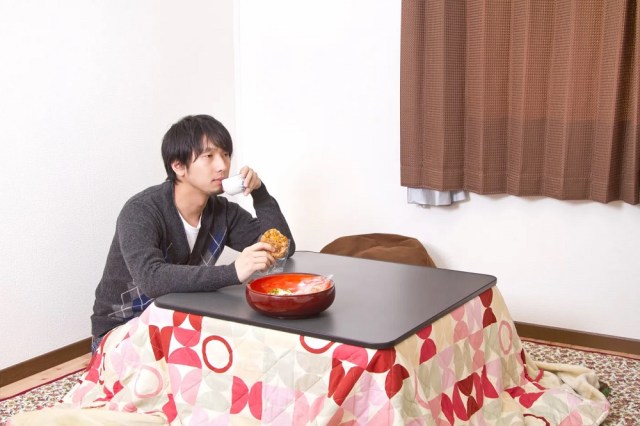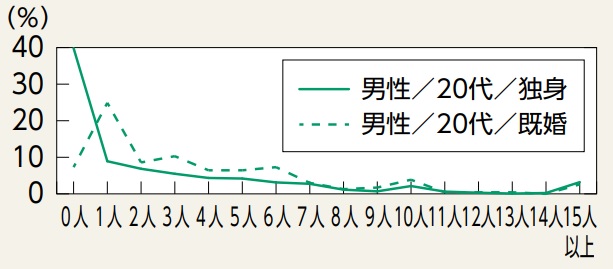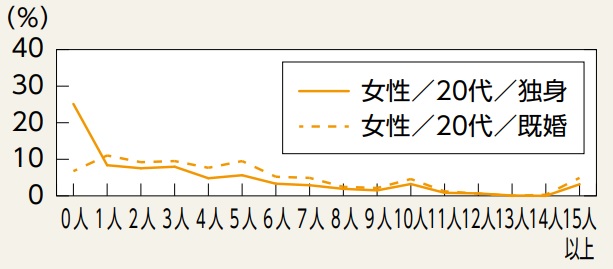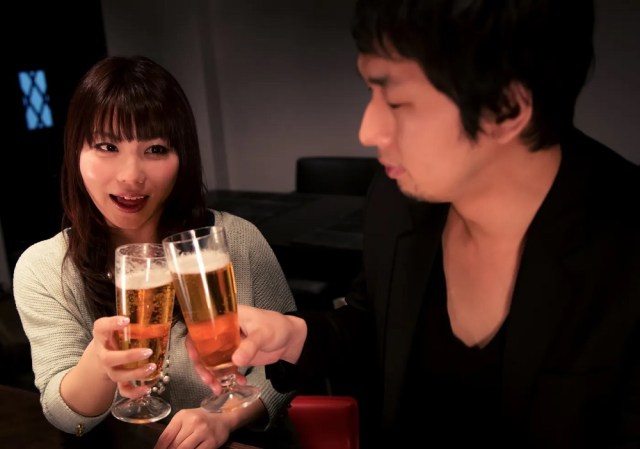Roughly 40 percent of single Japanese men in their 20s have never been on a date, survey says

And a lot of 20-something women are yet to go on their first date too, according to government study.
On Tuesday, the Japanese government’s Cabinet Office released a new white paper on gender equality. The wide-ranging study presented a large variety of data about men and women in Japan, one statistic that’s been met with shock is that, according to the study, roughly 40 percent of unmarried Japanese men in their 20s have never been on a single date.
As part of the paper’s overarching goal of clarifying the current societal situation for men and women in Japan, the researchers asked participants in their 20s whether they were married, completely unattached, or had a “lover” (the specific Japanese word, koibito, refers to a romantic partner, though not necessarily sexual, partner). The responses were:
● Men in their 20s
No spouse or lover: 65.8 percent
Lover: 19.1 percent
Common law spouse: 1.5 percent
Spouse: 13.6 percent● Women in their 20s
No spouse or lover: 51.4 percent
Lover: 27.3 percent
Common law spouse: 1.4 percent
Spouse: 19.8 percent
That’s a significantly higher proportion of unattached young men than women, and that gap was further reflected when those same demographics were asked how many people they’d ever gone on a date with. Here’s a graph of the responses from men in their 20s, with the solid green line for single men and the dotted one for married men, and the number of dating partners they’ve had along the bottom.

It’s not the most intuitive way of presenting the data, but the gist is this: roughly 40 percent of single men in their 20s who were surveyed have gone on a date with zero people, or, in other words, have never been on a single date in their entire life.
By comparison, the chart for women in their 20s (again with the solid line for singles and the dotted for married women) shows only about 25 percent of young adult women have never been on a date. That may or may not sound like a lot, depending on your image of 20-something romance, but it’s still a lot less than the figure for men.
▼ Surprisingly, about five percent of both married men and women in their 20s in the Cabinet Office’s study have also had zero dating partners, perhaps implying that they met their life partner through a konkatsu (spouse-searching) service.

The question about number of past dating partners was also posed to survey respondents in their 30s and 40s, who were more likely to have at least been on one date than the 20-somethings.
● Percentage of respondents who have never been on a date
Women in their 20s: Roughly 25 percent
Women in their 30s: Roughly 22 percent
Women in their 40s: Roughly 12 percent
Men in their 20s: Roughly 40 percent
Men in their 30s: Roughly 35 percent
Men in their 20s: Roughly 22 percent
It’s not clear, though, if the greater dating experience of the older respondents is because their age groups were more romantically active in their 20s than today’s 20-somethings are, or if they too spent their 20s dateless and had their first experience only after their hit their 30s or 40s.
▼ Maybe this dude has always been this dapper, and maybe he was a late bloomer.

Either way, though, 40 percent of men in the 20-29 age bracket having never been on a date feels like a big number. Whenever talking about dating habits in Japan, though, there are some important sociological factors to bear in mind, with the most important being that in Japan, explicitly asking someone out on a date is a bigger, bolder move than it is in many other cultures.
That’s not entirely due to Japanese shyness, either. Japanese society is very group-oriented, and that often extends to social life for college students and relatively new members of the workforce, the two categories many people spend most of their 20s in. In university, many people’s social lives are defined by the campus club or sports team they join, and many companies have drinking parties, employee trips, and other activities that the staff, especially younger members, are expected to participate in. Because there are so many occasions to socialize in a group setting, breaking away from that setting and asking someone out on a date, where it’ll be just the two of you, can carry a sense of more significant, relationship-ready interest than a casual “Let’s just go out to dinner and see if we’re compatible”-style invitation does in other countries. Even when meeting people outside of school or the workplace, Japan has a whole social institution called gokon, basically a group dinner for singles organized either informally by friends or by matchmaking services, where people can become acquainted and litmus-test their compatibility without going on an official “date.”

In other words, part of the reason 40 percent of the 20-something men, and 25 percent of the women, haven’t ever been on even a casual date is because casual dates themselves are less common in Japan, with the “still getting to know each other” phase often taking place at nominally platonic group events instead.
That said, the survey’s five percent of married 20-somethings who somehow got hitched without ever going on a date notwithstanding, ordinarily people do feel like they need to eventually go on a date before getting married. With planned single parenthood not really a thing in Japan and the Japanese government struggling to find ways to increase the country’s birth rate, it’s in the Cabinet Office’s best interest to search for specific answers as to why so few people are dating, and what can be done to help those who are dateless but not by choice.
It’s unfortunate that the survey apparently didn’t ask older respondents how many dating partners they’d had when they were in their 20s, since that would have shed some light on whether or not the large number of dateless young adults is a new phenomenon. As for what should be done, that’s a topic for another day, but maybe fewer high schools forcing students to join extracurricular clubs or flat-out prohibiting dating would at least make it so that young adults who are interested in finding a date aren’t starting off their 20s romantically flat-footed.
Source: Cabinet Office
Top image: Pakutaso
Insert images: Cabinet Office, Pakutaso (1, 2)
● Want to hear about SoraNews24’s latest articles as soon as they’re published? Follow us on Facebook and Twitter!
Credit:

0 comments: